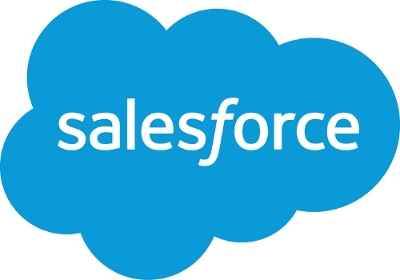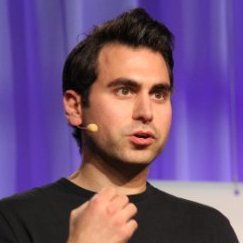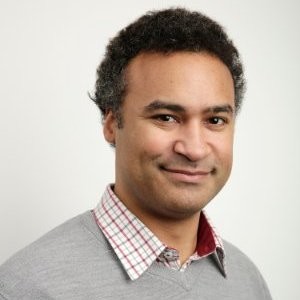precision medicine
See the following -
Precision Medicine Requires Unlocking Data from EHRs, Other Sources
Venture Funding for Digital Health in 2015 Reaches 2014 Level
Health information technology is “foundational” to President Obama’s $215 million Precision Medicine Initiative aimed at treating the specific needs and characteristics of individual patients, according to Karen DeSalvo, M.D., national coordinator for HIT. Read More »
- Login to post comments
Precision Medicine, Blue Button Among White House Big Data Efforts
 Precision medicine, medical research, and improved patient engagement through initiatives like Blue Button are among the highlight achievements of the Obama Administration’s emphasis on data transparency and information sharing, says a White House fact sheet celebrating the nation’s big data progress. The following is a rundown of some of the specific open-data health efforts of the Obama Administration...
Precision medicine, medical research, and improved patient engagement through initiatives like Blue Button are among the highlight achievements of the Obama Administration’s emphasis on data transparency and information sharing, says a White House fact sheet celebrating the nation’s big data progress. The following is a rundown of some of the specific open-data health efforts of the Obama Administration...
- Login to post comments
Precision Medicine, Genomics & 'Open Health'
Traditional medicine, integrative medicine, preventive medicine, predictive medicine, regenerative medicine – and now we have 'precision medicine'.
The purpose of this article is to provide a brief introduction and high level overview of 'Precision Medicine' to health information technology (IT) managers and analysts, along with pointers to key resources or sources of information they might want to explore if they decide to delve deeper into the topic. Read More »
- Login to post comments
Precision Medicine: Analytics, Data Science and EHRs in the New Age
The promise of genomics and personalized care are closer than many realize. But clinical systems and EHRs are not ready yet. While policymakers and innovators play catch-up, here’s a look at what you need to know. Considering how fast technology advances in the healthcare industry, it seems natural that a once-innovative concept could become obsolete in the span of, say, a dozen years. Knowledge, comprehension and capabilities continue moving forward, and if the instruments of support don't keep pace, it can cause a rift to appear. If nothing is done, it can exacerbate into a seismic event...
- Login to post comments
Sage Bionetworks to Share Results of Mobile Health Research Study at Upcoming Precision Medicine Conference
 In the midst of several colliding perspectives on personal data sharing from both patients and researchers, it is challenging to comprehend how clinical study designs should be conducted to benefit both stakeholders. Sage Bionetworks recently began sharing data from over 9,000 participants of mPower, a mobile health research study for Parkinson's Disease. As one of the first observational assessments of human health to achieve this scale, its success is attributed to the unique study design which emphasizes transparency and trust between participants and researchers...
In the midst of several colliding perspectives on personal data sharing from both patients and researchers, it is challenging to comprehend how clinical study designs should be conducted to benefit both stakeholders. Sage Bionetworks recently began sharing data from over 9,000 participants of mPower, a mobile health research study for Parkinson's Disease. As one of the first observational assessments of human health to achieve this scale, its success is attributed to the unique study design which emphasizes transparency and trust between participants and researchers...
- Login to post comments
Salesforce Introduces Salesforce Health Cloud -- Building Patient Relationships, Not Records
 Salesforce...today introduced Salesforce Health Cloud, empowering healthcare providers to go beyond health records and build stronger relationships with patients. Salesforce Health Cloud is a cloud-based patient relationship management solution that enables providers to gain a complete view of the patient with integrated data from electronic medical records (EMRs), wearables and more; make smarter care decisions; engage with patients across their caregiver networks; and manage patient data.
Salesforce...today introduced Salesforce Health Cloud, empowering healthcare providers to go beyond health records and build stronger relationships with patients. Salesforce Health Cloud is a cloud-based patient relationship management solution that enables providers to gain a complete view of the patient with integrated data from electronic medical records (EMRs), wearables and more; make smarter care decisions; engage with patients across their caregiver networks; and manage patient data.
- Login to post comments
Sequencing, cloud computing, and analytics meet around genetics and pharma Bio-IT World Shows What is Possible and What Is Being Accomplished
Bio-IT World shows what is possible and what is being accomplished...last week I took the subway downtown and crossed the two wind- and rain-whipped bridges that the city of Boston built to connect to the World Trade Center. I mingled for a day with attendees and exhibitors to find what data-related challenges they’re facing and what the latest solutions are. Here are some of the major themes I turned up...
- Login to post comments
Stanford’s John Ioannidis On “Underperforming Big Ideas”
 In a thought-provoking JAMA commentary out today, Stanford’s John Ioannidis, MD, DSc, and two colleagues call for biomedical researchers — and funding institutions — to “sunset underperforming initiatives.” Nothing controversial there, until you go on to read that some of those initiatives are in the popular fields of gene therapy, stem cell therapy or precision medicine. And, they write, perhaps some less-successful projects have been pursued simply because they fall within a top research field.
In a thought-provoking JAMA commentary out today, Stanford’s John Ioannidis, MD, DSc, and two colleagues call for biomedical researchers — and funding institutions — to “sunset underperforming initiatives.” Nothing controversial there, until you go on to read that some of those initiatives are in the popular fields of gene therapy, stem cell therapy or precision medicine. And, they write, perhaps some less-successful projects have been pursued simply because they fall within a top research field.
- Login to post comments
Study Unveils New Way to Starve Tumors to Death
For decades, scientists have tried to halt cancer by blocking nutrients from reaching tumor cells, in essence starving tumor cells of the fuel needed to grow and proliferate. Such attempts often have disappointed because cancer cells are nimble, relying on numerous backup routes to continue growing. Now, scientists at Washington University School of Medicine in St. Louis have exploited a common weak point in cancer cell metabolism, forcing tumor cells to reveal the backup fuel supply routes they rely on when this weak point is compromised. Mapping these secondary routes, the researchers also identified drugs that block them. They now are planning a small clinical trial in cancer patients to evaluate this treatment strategy...
- Login to post comments
Sure Strategies for Improving Health and Education: 2020 and Beyond
 Our paths cross as we enter a new decade and consider the next ten years can lead to marked improvements in healthcare delivery - something sorely needed but doable. To that end, we've identified three key developments that can and should be implemented. These are not the only needed improvements and avenues to be pursued; that would take a book or a longer article. So, we've focused on what are, for us, three of the most innovative possibilities. One added word: some of the three innovations or aspects of them may strike readers as fanciful or imaginary or over-the-proverbial-top. But, the speed with which technology is changing, the pressing need for solutions and our capacities to consider new paradigms for solving old problems are converging.
Our paths cross as we enter a new decade and consider the next ten years can lead to marked improvements in healthcare delivery - something sorely needed but doable. To that end, we've identified three key developments that can and should be implemented. These are not the only needed improvements and avenues to be pursued; that would take a book or a longer article. So, we've focused on what are, for us, three of the most innovative possibilities. One added word: some of the three innovations or aspects of them may strike readers as fanciful or imaginary or over-the-proverbial-top. But, the speed with which technology is changing, the pressing need for solutions and our capacities to consider new paradigms for solving old problems are converging.
- Login to post comments
The Not-So-Precise Side of Precision Medicine
The launch of the Precision Medicine Initiative in 2015, along with this year's Cancer Moonshot, have touted the promise of genomic data for population health and more personalized diagnosis. As a result, more consumers are seeking genetic testing and more researchers are contributing to these initiatives. But the healthcare industry isn't necessarily prepared for this shift. The popularity of genetic testing doesn't come without risks, according to Mayo Clinic's recent report, The Promise and Peril of Precision Medicine...
- Login to post comments
The Pathway to Patient Data Ownership and Better Health
Digital health data are rapidly expanding to include patient-reported outcomes, patient-generated health data, and social determinants of health. Measurements collected in clinical settings are being supplemented by data collected in daily life, such as data derived from wearable sensors and smartphone apps, and access to other data, such as genomic data, is rapidly increasing. One projection suggests that a billion individuals will have their whole genome sequenced in the next several years. These additional sources of data, whether patient-generated, genomic, or other, are critical for a comprehensive picture of an individual’s health...
- Login to post comments
The White House Is Pushing Precision Medicine, but It Won’t Happen for Years
For starters, it’s too expensive and the science isn’t advanced enough. With the right technologies to collect and make sense of biomedical information, we could speed up the pace of discoveries that lead to a new class of tailor-made drugs. That’s the argument behind the White House’s push for “precision medicine” (see “A Shot in the Arm for Obama’s Precision Medicine Initiative”). The goal of precision medicine is to provide drugs and therapies that are uniquely suited to individual patients based on their genetics and other distinguishing health information...
- Login to post comments
VA Collaborating With Flow Health to Bring Artificial Intelligence and Precision Medicine to Veterans
 Flow Health today announced that it has formed a five-year partnership with the U.S. Department of Veterans Affairs (VA) to build a medical knowledge graph with deep learning to inform medical decision-making and train artificial intelligence (AI) to personalize care plans. The partnership’s fundamental objective is to understand the common elements that make certain people susceptible to particular diseases, pinpointing effective treatments and identifying possible side effects in order to inform care decisions...
Flow Health today announced that it has formed a five-year partnership with the U.S. Department of Veterans Affairs (VA) to build a medical knowledge graph with deep learning to inform medical decision-making and train artificial intelligence (AI) to personalize care plans. The partnership’s fundamental objective is to understand the common elements that make certain people susceptible to particular diseases, pinpointing effective treatments and identifying possible side effects in order to inform care decisions...
- Login to post comments
Vibrent Health Joins Europe’s Open Source RADAR-CNS Program to Develop Scalable Analytics Platform for Health Wearables
 Health technology company Vibrent Health...expands its digital health solutions business into Europe through a partnership with Remote Assessment of Disease and Relapse – Central Nervous System (RADAR-CNS). Vibrent Health will work with the Europe-led consortium on developing digital health programs featuring predictive analytics designed to monitor and help improve treatment for depression, multiple sclerosis, and epilepsy. RADAR-CNS is conducting research using a range of medical-grade sensors, such as electro-cardiograms, as well as a growing portfolio of consumer-grade sensors, including accelerometers and smartphone applications, that collect participant data from surveys and smartphone sensors.
Health technology company Vibrent Health...expands its digital health solutions business into Europe through a partnership with Remote Assessment of Disease and Relapse – Central Nervous System (RADAR-CNS). Vibrent Health will work with the Europe-led consortium on developing digital health programs featuring predictive analytics designed to monitor and help improve treatment for depression, multiple sclerosis, and epilepsy. RADAR-CNS is conducting research using a range of medical-grade sensors, such as electro-cardiograms, as well as a growing portfolio of consumer-grade sensors, including accelerometers and smartphone applications, that collect participant data from surveys and smartphone sensors.
- Login to post comments